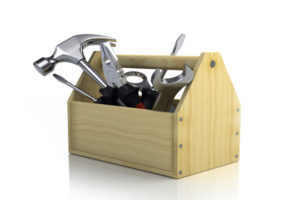 Property management maintenance is so important for owners as well as renters and most of the time neither is completely happy. It is never good enough. Owners feel that the maintenance costs too much. That renters are damaging their property. They just do not care enough to take good care of the building they live in. It is a fine line. At the end of the day, there must be enough money to pay for everything and still make a profit for the owner without totally gauging the tenant.
Property management maintenance is so important for owners as well as renters and most of the time neither is completely happy. It is never good enough. Owners feel that the maintenance costs too much. That renters are damaging their property. They just do not care enough to take good care of the building they live in. It is a fine line. At the end of the day, there must be enough money to pay for everything and still make a profit for the owner without totally gauging the tenant.
Property Manager Caught in Between
Caught in between is the property manager. They must work to find a balance between both parties without spending more money than what they need to. Sometimes he or she will assess the tenant for obvious damages. Sometimes they will delay minor repairs to group several together. They can save money by only having one service call. And sometimes they will delay major maintenance by using temporary measures. But the property manager ultimately works for the owner and is the owners representative on the property. It is the property managers responsibility to implement the policies and guidelines of the owner. At all times they must use their best judgement in many different situations.
Making matters worse is the government. Which regulates how quickly you can raise rental rates to pay for increasing taxes, interest rates and property management maintenance. These all go up almost every year. Building a budget that factors in these increases. The rent increases sometimes will help property managers and the owners keep a building looking great for many years. In fact budgeting for repairs and building up a fund to handle emergencies and major repairs is just sound business practice.
Property Management Maintenance – Budgeting
Rental properties are some of the most difficult buildings to manage from a maintenance perspective for many of the reasons mentioned above. In addiction, for rental buildings there usually must be two separate and distinct budgets.
Set up a budget to manage all tenant related expenses associated with the units that are being rented. This would include any repainting, carpet cleaning and repairs after a tenant moves out. If the repairs are normal wear and tear, then the owner must absorb these costs out of the general revenue for the property. Appliances only last so long. Carpets need to be replaced. Damages must be repaired for and paid. Usually prior to collecting anything from the tenant. This all must be accounted for and included in a budget. They must pay for them prior to collecting from the tenant.
Another Budget
Set up a second budget for the building itself. This would include all common expenses. It may also include cleaning, window washing, common lighting, snow removal, garbage removal, repairs to the roof or windows and so on. Some of these expenses are operational in nature in that they occur on a regular basis weekly or monthly. A roof replacement is a good example. In addition, ideally money should be set aside every year to handle all major repairs such as this. In some locations, budgeting for these expenses is in fact part of the bylaws of the building.
There is a lot of responsibility for property managers. They are accountable for everything that goes on at the building they are managing. Hire an excellent property manager who has experience. They should have a good relationship with all parties will make a huge difference with everyone.
For a lot more posts about property management topics, click here.